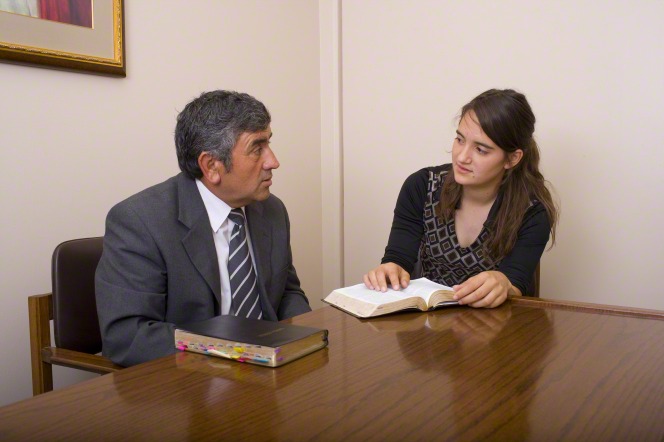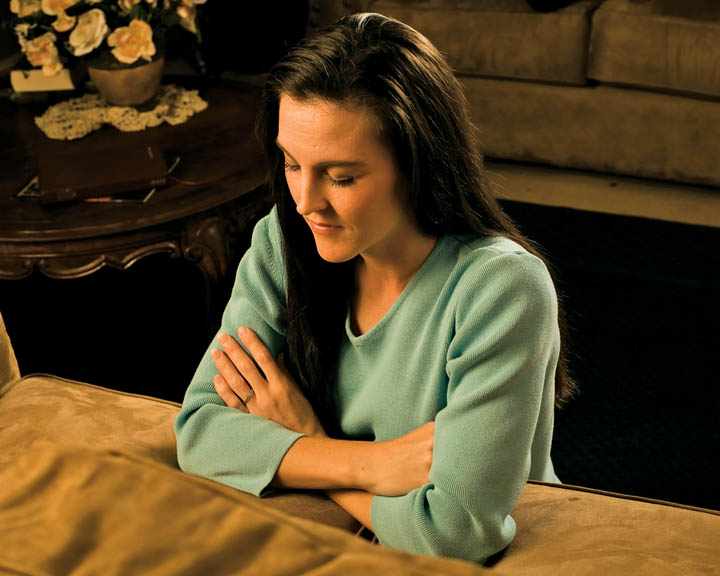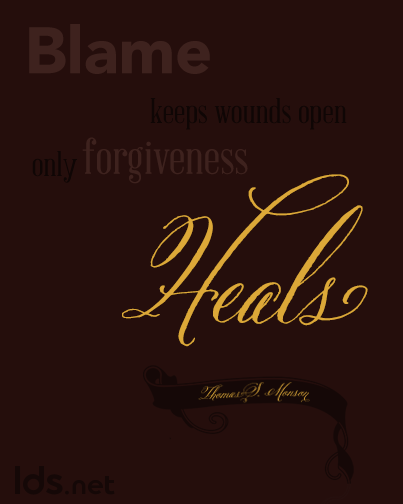
Today is National Abused Women And Children Awareness Day. Victims of abuse may feel that there is no hope, that they will be damaged forever, and never know happiness again. But with the gospel of Christ, there is hope, comfort, and God’s everlasting love for his children. Here are six steps for victims healing from abuse to overcome abuse through the support and love of their Heavenly Father.
Seek Help, Stop the Abuse

The first step to healing from abuse is to get out of the abusive situation. A victim cannot begin to heal in an environment of fear and pain. The Church advises that victims “should seek help immediately, normally from their bishop or branch president” who will help protect those who have been abused and will guide them to additional assistance and counseling.
Trust in the Lord, Don’t Blame Him
 You are a child of God and the Lord loves you. After abuse, a victim will feel hurt, and may blame God for what has happened to them. But in reality, God wants their every happiness. The abuse was perpetuated through the agency of others, and God will not tolerate abuse of any kind (Matthew 18:6; Doctrine & Covenants 121:36-40).
You are a child of God and the Lord loves you. After abuse, a victim will feel hurt, and may blame God for what has happened to them. But in reality, God wants their every happiness. The abuse was perpetuated through the agency of others, and God will not tolerate abuse of any kind (Matthew 18:6; Doctrine & Covenants 121:36-40).
Richard G. Scott, in his Ensign article “Healing the Tragic Scars of Abuse,” says that “[u]nless healed by the Lord, mental, physical, or sexual abuse can cause you serious, enduring consequences.” Though it may seem impossible to trust anyone after going through abuse, victims must trust in the Lord to help them. He is perhaps the one person anybody can put their trust in completely.
It is Not your Fault
Victims of abuse are innocent of the crimes perpetuated on them. The Church tells us that “[v]ictims of abuse should be assured that they are not to blame for the harmful behavior of others. They do not need to feel guilt.” They are responsible for their own actions, not the actions of their abusers.
Victims need not fear the blame and judgement of others. Their family, friends, bishop, and members of their ward will not hold them responsible for the abuse. They love the victim and are willing to help them. Halfofus.com says that it is important for victims of abuse to have a support network. Friends, family, and the ward family can be such a support network for a victim.
Pray

Pray to God for relief. Pray to him for strength. Pray to him for faith in healing. The scriptures teach us to “cry unto God for all thy support” (Alma 37:36) because the Lord will support you. He will send comfort and guidance through the Holy Ghost. God wants a victim to heal from abuse, they need only to ask for it.
Healing from Abuse Requires Belief

One cannot heal from abuse if they do not start to believe that they can. Though it seems impossible to heal early on, victims must strive to have faith that they will be able to do so. Their attitude and agency play a crucial role in the healing process.
Richard G. Scott says that “[y]ou may be left scarred by abuse, but those scars need not be permanent . . . you are free to determine to overcome the harmful results of abuse.” The victim has the right to “have faith in [their] powers of self-restoration.” When a victims believe in themselves, they gain a self-confidence that will help them continue to heal.
Forgive
 Forgiveness does not mean that a victim should fall back into the cycle of abuse. Anne Horton, a participant for the article “A Conversation on Spouse Abuse,” says that “many people think that forgiving equals forgetting . . . But while the Lord commands us to forgive, He doesn’t tell us to forget any lessons we have learned or demand that we trust an abuser.”
Forgiveness does not mean that a victim should fall back into the cycle of abuse. Anne Horton, a participant for the article “A Conversation on Spouse Abuse,” says that “many people think that forgiving equals forgetting . . . But while the Lord commands us to forgive, He doesn’t tell us to forget any lessons we have learned or demand that we trust an abuser.”
Richard G. Scott promotes forgiveness towards an abuser when he counsels victims to avoid “[e]xcessive probing into every minute detail of your past experiences . . . [and] blaming the abuser for every difficulty in your life.” One cannot focus on healing towards a better future is they are stuck in the past. If they cannot press forward, then they cannot heal.
Forgiving an abuser will help give relief to the victim. If the victim does not forgive, then they hold a poisonous grudge that will eat them from the inside out. They are not progressing or even standing still, but are taking steps backwards. Though the abuser’s actions cannot be justified, hate towards them will only cause continual emotional harm for the victim.
Hate and revenge are never the answer; they will not change the past or make the victim feel better. We learn from the scriptures that we are required to forgive all people (Doctrine & Covenants 64:10), and when victims forgive their abuser, it will give them comfort and relief.





